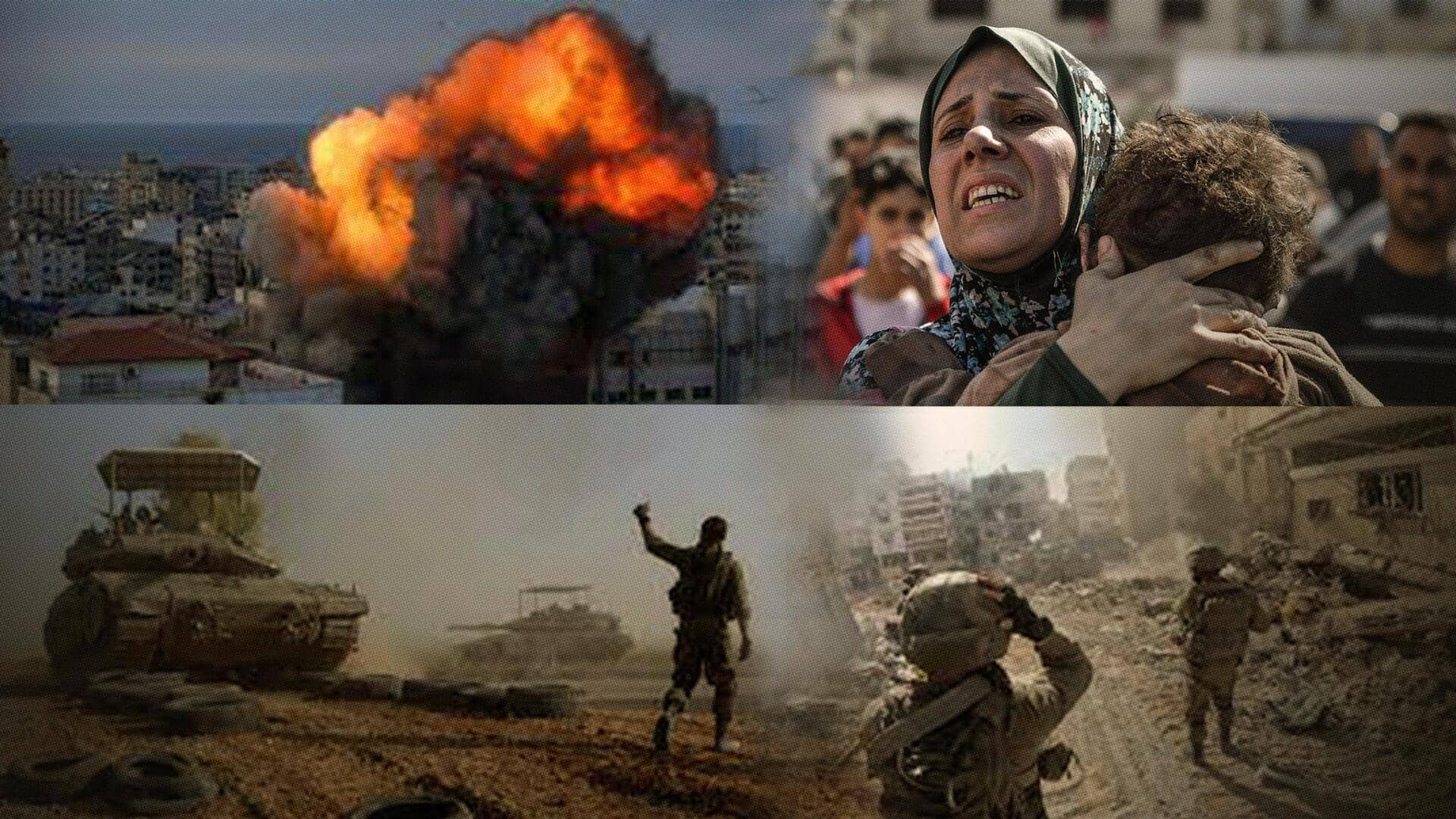
Nowhere safe: UN after Israel extends war to southern Gaza
What's the story
Israel has intensified its fight against Hamas in Gaza as its forces pushed further into the strip's southern region. The Israel Defense Forces (IDF) also dropped leaflets, urging Palestinians to leave the area, per AFP. It earlier asked people to move from north to south for their safety. The United Nations has expressed concern, saying the development would lead to an "even more hellish scenario" for civilians caught in the crossfire. It noted no place is now safe in Gaza.
Context
Why does this story matter?
On Friday, the IDF resumed its fight against Hamas after the end of a truce. The conflict was triggered after the Palestinian terror group Hamas killed 1,200 Israelis and took 240 hostages during its surprise October 7 cross-border attacks on Israel. In response, Israel launched multi-pronged retaliatory strikes in Hamas-controlled Gaza, killing over 15,000 Palestinians. Reportedly brokered by Egypt and Qatar, the ceasefire was in effect from November 24-30, resulting in the release of 105 hostages and 240 Palestinian inmates.
Details
Hamas claims attacks on Israeli vehicles
Several tanks and other military vehicles of the IDF have already been spotted near Khan Younis, a city in southern Gaza where many residents who fled the northern region are present. Meanwhile, Hamas claimed to have targeted two personnel carriers and a tank near Khan Younis. The group said it once again fired several rockets from Gaza toward Israel. This came after Israel said it was determined to eliminate Hamas and secure the release of all hostages in Gaza.
UN
'Even more hellish scenario' looms for civilians, warns UN
Amid the escalation in war between Israel and Hamas, humanitarian organizations have warned that civilians in the densely populated strip were running out of safe places to flee to. The UN's humanitarian coordinator for the Middle East, Lynn Hastings, said in a statement, "Nowhere is safe in Gaza, and there is nowhere left to go." "If possible, an even more hellish scenario is about to unfold, one in which humanitarian operations may not be able to respond," she added.
WHO
WHO says Gaza situation getting worse
The World Health Organization (WHO) also claimed the Gaza situation was deteriorating after Israel intensified its bombing in the southern cities of Khan Younis and Rafah near Egypt's border. "The situation is getting worse by the hour," the WHO representative on the occupied Palestinian territory, Richard Peeperkorn, told the media, per Reuters. "There's intensified bombing going on all around, including here in the southern areas, Khan Younis, and even in Rafah," he added.
Insights
Israel using mapping software to monitor evacuation; UN questions it
Meanwhile, reports said the Israeli army was utilizing advanced mapping software to monitor the movement of people within Gaza and notify evacuation orders. This system reportedly utilizes mobile phone signals, aerial surveillance, local sources, and artificial intelligence (AI) to provide a continuously updated map of population concentrations throughout the territory. However, the UN Office for the Coordination of Humanitarian Affairs (OCHA) questioned the effectiveness of such a tool in an area that doesn't have reliable telecommunication services and electricity.
What Next?
Civilian casualties, displacement in Gaza
The Hamas-controlled Health Ministry in Gaza stated that nearly 15,900 people had been killed in the region, with about 70% being women and children. At least 1.8 million people have been displaced in the strip, which is roughly three-quarters of its total population, per UN data. Moreover, the United States (US) had urged Israel to put in more effort to prevent civilian casualties in Gaza as operations moved southward.
Facts
Collapse of Qatar-mediated truce
The recent fighting comes after the Qatar-mediated truce, which led to the release of Israeli and foreign hostages in batches in exchange for Palestinian prisoners, ended last week. At least 137 hostages remain in Gaza, but Hamas has refused further releases until a permanent ceasefire comes into force. The ongoing conflict has raised concerns about a broader regional war, with reports of frequent exchanges of fire between Iran-backed Hezbollah and Israel along the Lebanon border.